Tokyo 2020: Making some kind of history
Published on July 23rd, 2019
by Craig Leweck, Scuttlebutt
There is not complete agreement when it comes it comes to counting Olympic medals. It would seem simple enough – medals are medals – but when breathing the rarefied air of Olympians, the podium has levels.
This is evident in the nation tally for sailing medals in which Great Britain is top ranked with 58, followed by the USA with 60. This is due to GBR having the most gold medals, but it gets wackier as Austria with 8 medals is ahead of Italy with 14. Whatever…
So I guess British Olympic champion Hannah Mills is allowed to speak of her goal to become the most successful female sailor in Olympic history next year by adding a second gold to her collection, which also includes London 2012 silver.
I’m not sure if this throws shade on Alessandra Sensini of Italy who holds the record for the most Olympic medals won by a female sailor with four, but just one is gold alongside one silver and two bronze. Hmm… standing on the podium for four consecutive Olympics seems pretty successful to me.
When it comes to the Olympics, I am a quantity guy. You’re either a medalist or you’re not. I kiss them all, though Laser Radial sailor Marit Bouwmeester (NED) will also be locked in battle with Mills as she seeks gold in Tokyo 2020 to add to her silver at London 2012 and gold at Rio.
I say good luck to them, both 31 years old, and whatever medal they win will rise them above the slew of double medalist and join Barbara Kendall (NZL) and Ruslana Taran (UKR) on the triple tier (though I suspect even that tier has tiers).
A story by BBC Sport details the challenges Mills has faced since her gold in Rio 2016 and the difficulties which the sailors will face in Tokyo 2020:
Olympic sailing champion Hannah Mills says conquering the “wacky” conditions at Tokyo 2020 could be the toughest challenge of her career.
“The sailing venue is phenomenal – it’s just amazing,” says the Welshwoman with visible excitement. “This bay is literally open to the Pacific Ocean so we get some of the biggest waves we’ve ever sailed in, which I thought Rio delivered, but then you come here and think ‘oh my god!'”
Anyone who has experienced a stormy, stomach-churning sea-crossing and imagined ‘calmer’ conditions are what Olympic sailors hope for would be wrong – although even Mills, who “loves” sailing these waters, which are around 50km south of Tokyo in Enoshima, admits to a few moments of doubt.
“You catch some of these waves and you’re like ‘I don’t want to be on this because we’re going to go straight down into the bottom of the ocean’! It’s just wacky,” she says.
These true tests of her ability to navigate the toughest tides are among the reasons Mills decided to return to the sport, and the 470 class in which she won Rio gold, despite spending over 18 months after the last Olympics debating her future.
Seven years ago Mills and previous crew Saskia Clark were targeting gold on home waters at London 2012, but were left “devastated” by finishing second.
Rio offered redemption and the pair duly delivered an “emotional” and “truly special” victory in what was Clark’s last race before retirement.
“I knew Sas was going to stop and I was pretty sure I was going to because it would have been perfect to go out as an Olympic champion,” recalls Mills.
“The Olympics are just the most incredible thing though and I always knew that I had more in me, but I’m putting it all on the line.”
Mills considered several new challenges, but suffered concussions, a “small brain bleed” and had gastroscopy during a difficult 12 months after Rio.
Later in 2017 she confirmed her intention to return to the 470 full-time, rather than switch to the 49erFX she had previously been tempted by, and recruited former rival Eilidh McIntyre as her new crew.
“We were both going for Rio, but [after the Olympics] she split with her partner and I knew that if I was going to go again she was the one I had to go with as I’d seen how good she is,” says Mills.
McIntyre, 25, is six years younger than Mills and admits she “felt a lot of pressure” stepping into the boat with an Olympic champion, despite her father Mike McIntyre having won an Olympic gold in the Star class back in 1988.
“I’d known of her for years, but we’d never got to know one another because we were rivals, so I was pretty nervous calling and asking her to sail with me,” says McIntyre. “I felt the pressure was on me to convince her to continue.”
During their two years together they have won silver and bronze medals at the World Championships and a host of other international honours, something Mills calls “phenomenal”.
‘We’ve taken over a village!’
The GB sailors are among a group of British athletes – including those from swimming, gymnastics, archery and hockey – who have this month been holding camps and testing out the 2020 Olympic venues a year out from the Games.
The sailing team have taken their preparations to another level by effectively taking over the village of Hayama, which is on the opposite side of the bay to the athletes’ village in Enoshima.
“The village doesn’t have enough room for us all to be together and we place a lot of value on having the right team environment,” says Mills.
She says the residents in Hayama have been “incredibly welcoming” and believes the nation will put on an “absolutely phenomenal” Olympics, but she anticipates a tougher challenge than in 2016.
“In Rio there were a lot of negatives about the water quality and whether it would be ready on time but we were well prepared as we’d trained there so often and went on to deliver,” she says.
“This time, because I had time away and because there are only certain months we can train in the venue with the right conditions, we’re more limited.
“I’m a little apprehensive because I feel we’ve a lot of work to do to catch up with the Japanese who’ve spent a lot of time here and when we’ve raced with them you get the feeling they know what’s going on a bit more than we do.”
Mills and McIntyre will have two big opportunities to test themselves against their Japanese rivals – and the rest of the world’s best 470 sailors – at this year’s 470 World Championships and the official Olympic test event, both of which take place in the 2020 sailing venue next month.
Paris 2024 ‘highly unlikely’ but ‘never say never’
Although Mills insists it’s “highly unlikely” she will continue in the sport beyond Tokyo 2020 she does add “never say never” while emphasizing her enthusiasm for the changes planned for her sport come the Paris 2024 Games.
Separate events for male and female 470 classes are set to be replaced by one mixed competition with men and women competing together in the same boat.
“It’ll be amazing because size wise it really suits a mixed pairing where you could have a male helm or a female helm and the same with crews,” said Mills.
“Men and women bring so many different things to a sporting environment and I think we could both really learn from one another which would be exciting for the class, but I do struggle to see myself being there.”
The sailor, who has spoken passionately about using sport to help boost awareness about the environment, is set to launch a sustainability project with the International Olympic Committee (IOC) later this year.
“Sport has such a platform to reach so many places around the world and to make real positive change and we can use our voice to make change,” says Mills who plans to move into campaigning after retiring.
“People look up to athletes as role models, so if we unite on certain issues I think we can great global awareness and change, I feel we have the power to do that,” she said.


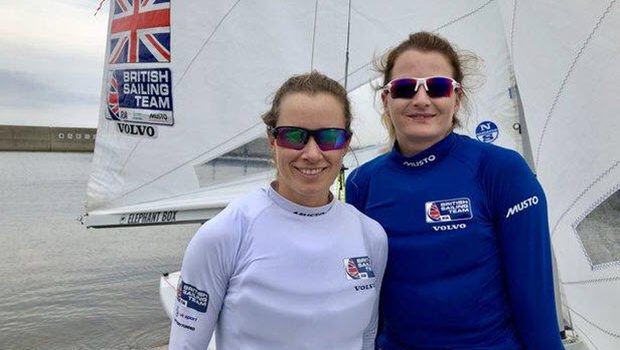

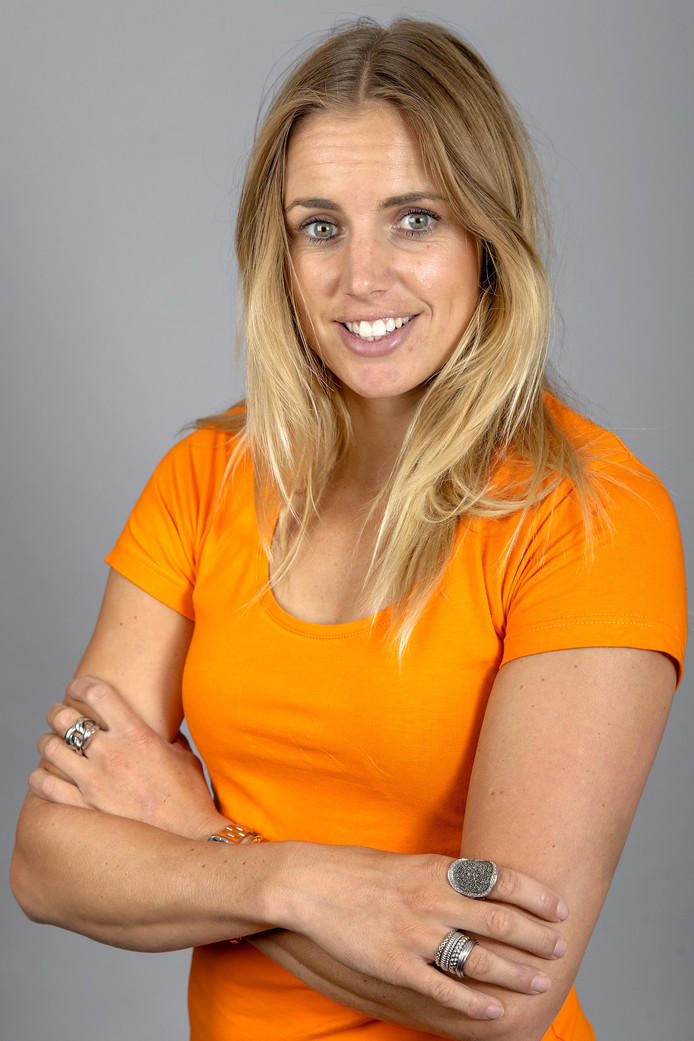
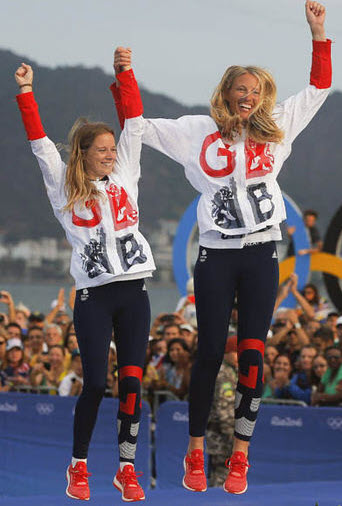
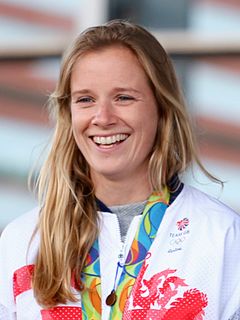


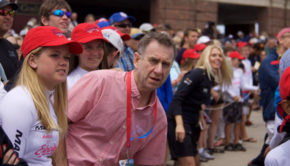
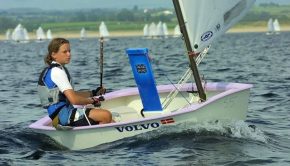

 We’ll keep your information safe.
We’ll keep your information safe.